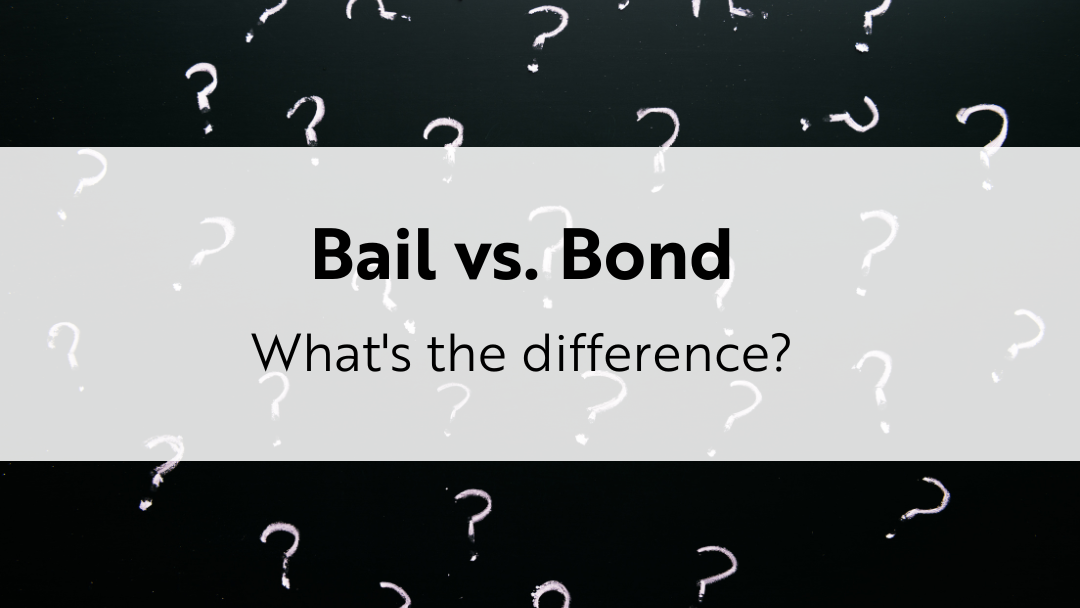3 min read
What’s the Difference Between Bond and Bail?
When we started our bail bond company over four decades ago, Frank Calabretta’s Bail House set out not only to help people get out of jail...
3 min read
Courtney McArthur : Updated on August 13, 2025
When it comes to navigating the intricacies of the legal system, particularly in situations involving bail, it’s essential to understand the roles and responsibilities of the professionals involved. Two significant figures in the bail bond process are the bail bond agent and the bail bond clerk. While they share a common objective of facilitating the release of individuals awaiting trial, they perform different functions within the bail system. At Frank Calabretta’s Bail House in Auburn, California, we want to help shed light on the difference between a bail bond agent and a bail bond clerk, and provide insights into how bail bonds work.
To grasp the distinction between a bail bond agent and a bail bond clerk, it’s necessary to first comprehend the difference between bail and bond. Bail refers to the monetary amount set by a court that an accused individual must pay to secure temporary release from custody before their trial. On the other hand, a bail bond is a contract provided by a bail bond company or agency that guarantees the full bail amount will be paid if the defendant fails to appear in court on his or her appointed date.
A bail bond agent, also known as a bail bondsman or bail agent, is an individual who is licensed to offer bail bonds to defendants in need. Their primary responsibility is to provide financial assistance to defendants who cannot afford to pay the full bail amount on their own. When a defendant seeks out a bail bond agent, they typically pay a percentage of the total bail amount (usually around 10%) as a fee. In return, the bail bond agent issues a bail bond to the court, and thereby assumes the financial liability if the defendant fails to appear for their court date.
Bail bond agents work very closely with defendants, making sure they fully understand the terms and conditions of the bail bond contract. They assess the amount of risk associated with providing a bail bond to the individual and may require collateral from the defendant or their loved ones, such as property or valuable assets. Bail bond agents also employ professional bounty hunters to locate and apprehend defendants who violate the conditions of their release and fail to show up to their scheduled court date.
A bail bond clerk, also referred to as a bail bond administrator or bail bond office assistant, operates in an administrative role within a bail bond agency. Their primary responsibilities involve handling paperwork, documentation, and maintaining records. Bail bond clerks work closely with both bail bond agents and the court system in general to ensure the smooth processing of bail bonds.
Bail bond clerks are responsible for organizing and preparing bail bond documents, verifying defendant information, and confirming compliance with any legal requirements. They play an important role in coordinating between the bail bond company, the court, and law enforcement agencies. Additionally, bail bond clerks are critical because they maintain accurate financial records of fees paid by defendants and verify adherence to all regulatory guidelines.
The bail bond process begins when a defendant is arrested, goes through the booking process, and is granted bail. If the defendant is unable to pay the full bail amount (which is often the case), he or she can seek assistance from a bail bond agent. The agent charges a non-refundable fee (typically about 10% of the bail amount in the state of California) and issues a bail bond to the court. Once the bail bond is posted, the defendant is released from jail under the condition that he or will appear for all scheduled court hearings.
If the defendant fails to appear on the scheduled court date(s), the bail bond amount is forfeited, and the bail bond agent assumes financial liability for the full bail amount. The agent is then permitted to employ bounty hunters to locate the defendant and bring him or her back to court. If the defendant does appear in court as required however, the bail bond is returned to the bail bond company, and the agent’s financial obligation ends.
At Frank Calabretta’s Bail House, we want to make sure defendants and their loved ones truly understand the roles of key professionals in our industry. While bail bond agents facilitate the release of defendants by providing financial assistance, bail bond clerks handle administrative tasks and ensure compliance with legal procedures. Together, both individuals work to make certain the bail bond process runs smoothly. By grasping the distinction between these roles and comprehending how bail bonds work, we hope that defendants can navigate the system more effectively and secure temporary freedom during the legal process.
If you or a loved one finds yourself in a situation requiring a bail bond, seek assistance from our reputable and licensed bail bond company for a smooth and easy process. You can reach us 24 hours a day, seven days a week at (530) 823–8340. We are standing by and ready to help!

3 min read
When we started our bail bond company over four decades ago, Frank Calabretta’s Bail House set out not only to help people get out of jail...

At Frank Calabretta’s Bail House in Roseville, California we are dedicated to helping not only our clients, but their loved ones in their time of...

The process of securing bail can be bewildering to many people, especially if it is the first time you or a loved one has been arrested. Amidst the...